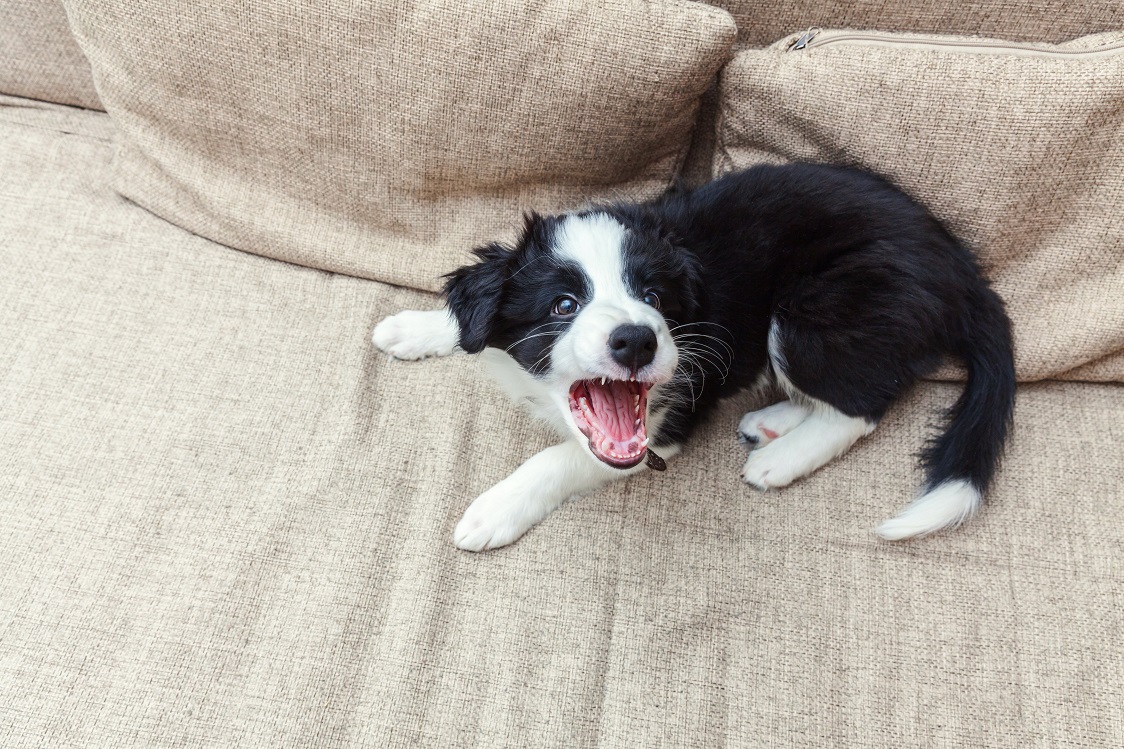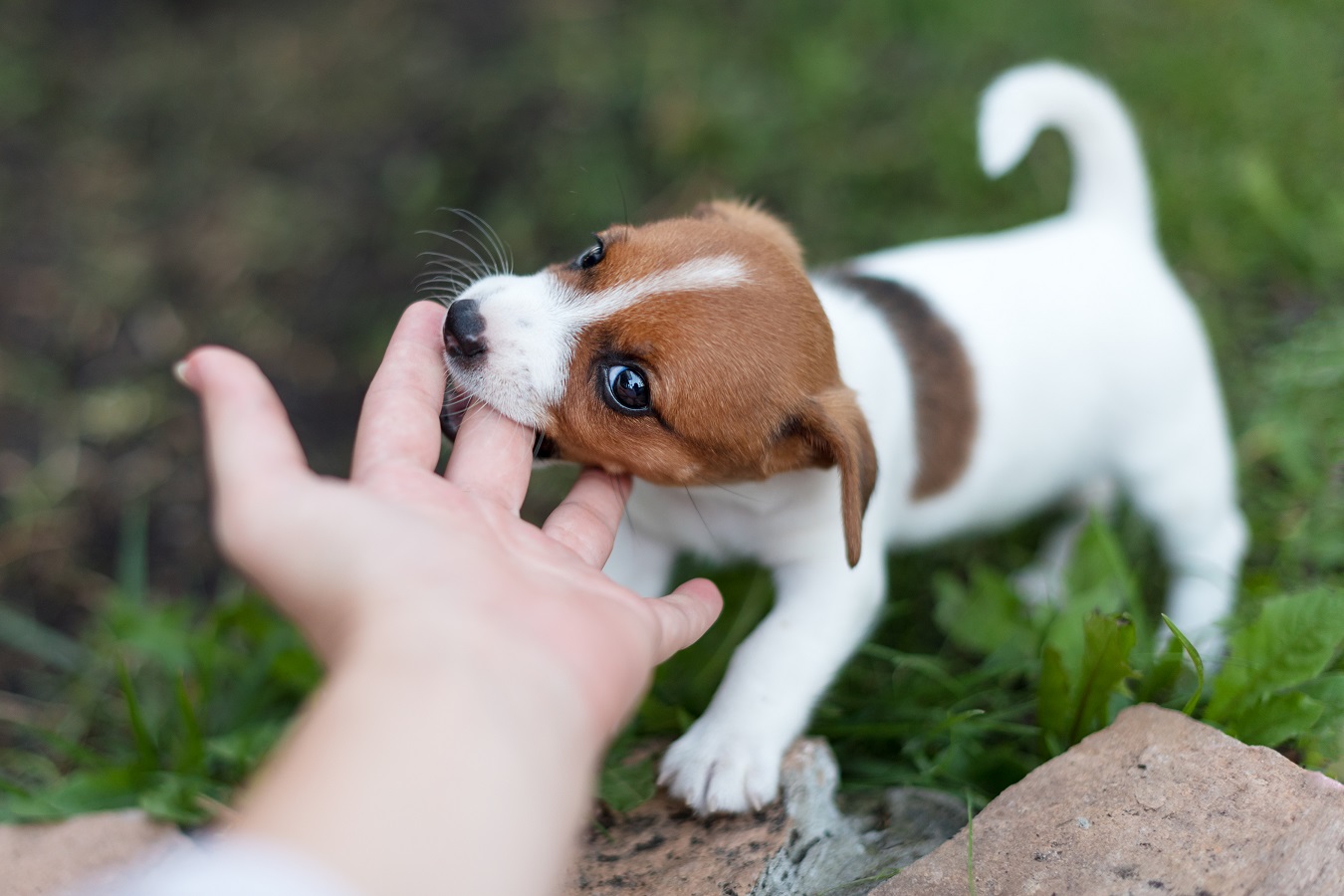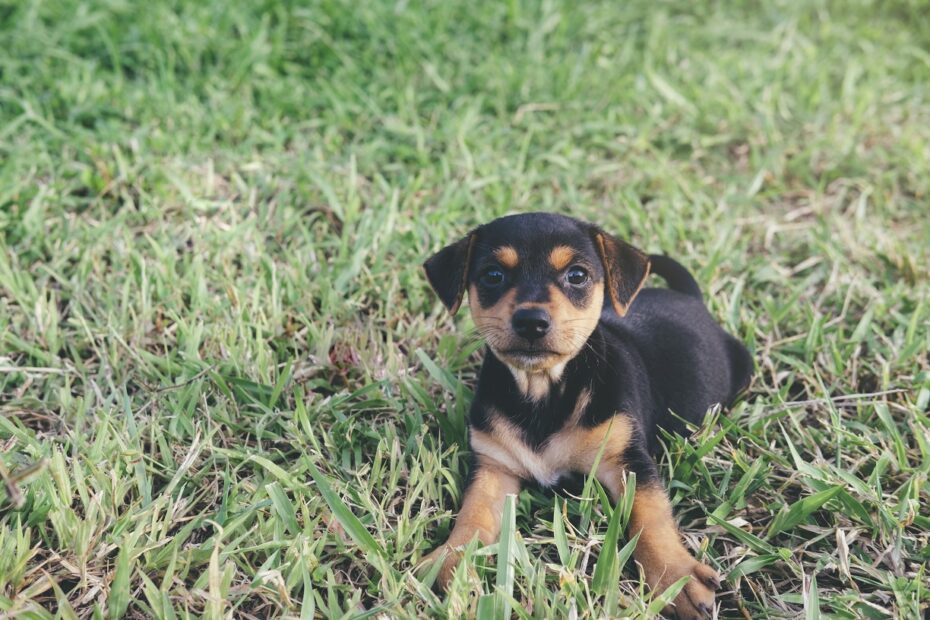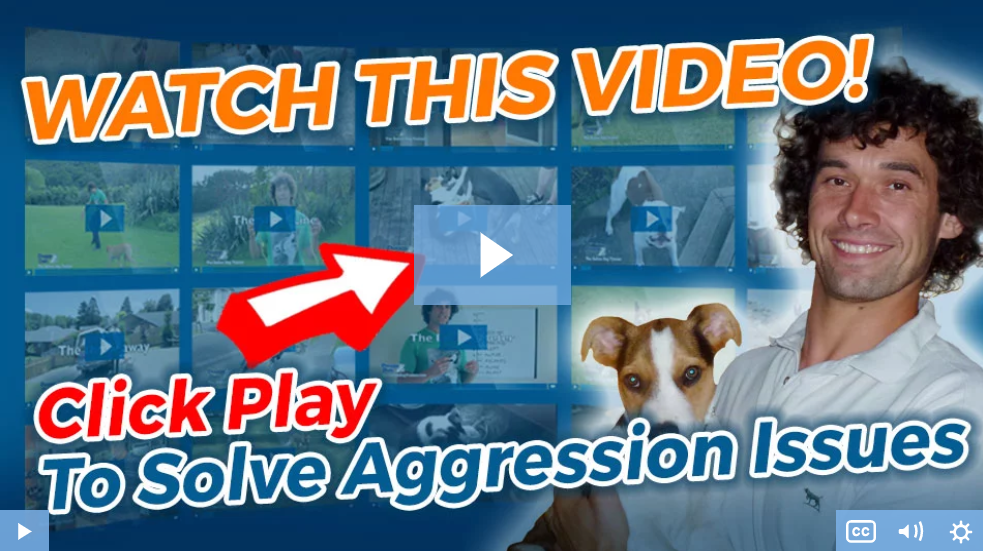If you’ve got a problem with your puppy lunging and biting then you’ll already know what a massive headache it is.
Constantly having to restrain your pup from going on the offensive probably isn’t what you had in mind when you bought the little guy home. And dealing with the consequences if they ever cause damage to others won’t be much fun either.
Ultimately, puppies can display all sorts of troubling behavior in their early years.
And while some pups are naturally more prone to behaviors like lunging, biting, and general naughty behavior, it’s still something that needs nipping in the bud before it escalates into something more serious.
Luckily, the situation can be resolved. Because while lunging and biting is a major concern (especially if it’s directed at other people or animals), there are a few very simple strategies you can use to effectively manage the behavior.
For starters, I’d first recommend checking out the short video below from Dan Abdelnoor (aka Doggy Dan) over at The Online Dog Trainer.
During the video, Dan reveals what to do, but more importantly, what NOT to do when it comes to calming the unruly nature of your pup.
So watch the video, apply the quick and simple techniques Dan recommends into your pup’s routine, and you’ll see a marked improvement in their ability to kick their lunging habit for good.
Here’s the link to take a look: Click Here To Discover How To Finally Solve Your Puppy’s Lunging Problem… Even If You’ve Tried & Failed Before!
(video will open in a new window)
Why Do Puppies Lunge & Bite?
Now, as we’ve already discussed, lunging and biting can be a result of either playfulness or aggression.
But despite this, there’s more than one reason for this frustrating behavior. So take the time to read some of the potential causes below.
Do any ring a bell?
Overexcitment Or Overstimulation
As with any pup, things are going to get a little out of control every once in a while.
And who can blame them, really?
I mean, if you were to switch places and see the world through your puppy’s eyes, you’d see that everything’s new and interesting. And I’d be willing my last dollar that you’d use every last second making the most of it.
It’s kind of like a baby who’s just learning to walk or crawl. Now they’ve got the tools to explore and experience new things… they’re obviously going to make the most of it.
They Don’t Know Any Better
It sounds stupidly simple, but this is something that’s often overlooked when it comes to bringing a new pup home.
Going back to the previous scenario about learning to walk and crawl. You can’t just expect your puppy to know the rules of the house without any former training.
And while some puppies will instinctively recognize that you’re not happy with them the first time they attempt to lunge or bite. Others will be blissfully unaware until you’ve instilled the habit a lot more rigidly.
A great way to combat this is to use the turn and ignore approach.
Like the name suggests, it’s a process that involves turning your back and ignoring your pup whenever they attempt to lunge or bite.
It might take many attempts before your pup starts to get the message. But when they do, they’ll quickly realize that lunging and biting is a surefire way to losing your attention.
Teething Issues
While this doesn’t necessarily apply to lunging, you shouldn’t rule out the fact that your puppy’s persistent biting habit could be a result of teething pain.
Generally, puppies go through a teething process that can last anywhere from 6-12 weeks.
And even though it may not be the most obvious culprit, it’s not something you should rule out either, especially if the behavior has come on suddenly.
Natural Aggression
Heartbreaking as it might be, some pups are prone to having a natural aggressive instinct that can stem from the early days when they were part of a litter and had to fend for themselves.
And although this can be addressed over time with behavioral modification techniques (or better still, implementing the calming techniques Dan demonstrates over at The Online Dog Trainer), it’s still quite common to see among puppies who didn’t have the best start.
Dominant Play
You may have noticed with some pups (especially sibling puppies) that the need for roughhousing and dominant play is just a natural part of growing up.
So if you pick up on this behavior and it’s specifically aimed towards other dogs or pups, it could just be that playtime has gone a little too far.
Again, while playful lunging and biting can be seemingly harmless, it’s still important to keep a close eye just in case the situation takes a turn for the works. And if possible, limit dominant play before things get out of hand.
Related Post: How To Stop Sibling Puppies From Fighting – The Quick & Easy Way

How To Stop Your Puppy Lunging And Biting
Taking all of the above into account, it’s clear to see there’s more than one reason your puppy could be behaving the way they are.
However, the good news is that when dealt with in the right way, it’s a completely manageable behavior.
And with a bit of patience and effort on your part, you can soon get to grips with eliminating these bad habits once and for all.
Read on to learn how…
Look At Changing Your Behavior
Perhaps the easiest step to effectively managing your puppy’s lunging and biting is to look a little closer to home and assess if there’s anything you could be doing in particular to encourage this habit.
This goes for both the playful and aggressive types of lunging and biting aswell. Because unbeknown to you, there could be a few subtle vibes you could be giving off that sustain the behavior.
It’s kind of like when a dog or puppy goes nuts at the first sign of a leash.
You know they’re already excited to go for a walk, but most owners add a new element of excitement to the whole thing by getting excited themselves and speaking in an upbeat voice.
Although it’s not intensional, all you’re effectively doing is reinforcing the behavior by matching their level of excitement.
The fix?
Take note of your own behavior next time your puppy starts acting up.
Are you encouraging roughhouse play by raising your voice or overstimulating your dog?
Or are you getting angry when your puppy lunges in for a quick nip or bite?
It’s hard, I know, and I understand that it can be frustrating, especially when all you want is for your pup to settle down.
But if you can learn to manage your behavior first, you’ll find that in time, it will start to rub off on your pup.
Remove Yourself From The Situation
If the effects of your puppy’s lunging and biting are primarily aimed at you, you’d be doing yourself (and your pup) a favor by removing yourself from the situation.
This also goes hand in hand with the turn and ignore approach I mentioned a little earlier. Only now, you’ll remove yourself from the situation completely until your pup has calmed down.
The easiest way to do this is to simply leave the room and wait a few minutes until your confident your pup has dialed down the excitement.
Again, applying the techniques Dan teaches in the Online Dog Trainer Program is a surefire way to make sure your pup remains calm and doesn’t resume the behavior anytime soon.
It sounds simple, but once your pup learns that lunging and biting equals no attention from you. They’ll soon get the message that it’s not a behavior to be tolerated.
Praise The Positive
Positive reinforcement is undoubtedly one of the best things you can do to eradicate unwanted behavior and bring about peace in the home.
In short, it basically involves praising any positive behavior your pup displays while ignoring the negative.
It can be difficult to impliment at first, especially when your puppy is persistently lunging and biting at every opportunity.
But if you can pick out specific intervals when they’re not behaving badly, you’ll be in a prime position to offer praise and attention.
Be Consistent
As with most things in life, consistency pays off and will ultimately have a massive impact on solving any behavioral issue long term.
To put it bluntly, if you apply the above techniques one day and ignore them the next. It’s going to have a detrimental effect on stopping your pup’s unwanted behavior for the better.
The lesson? …be consistent.
Puppies crave structure, and if you’re consistent with applying the exercises and don’t let up, they will get the message eventually, even if it takes a little longer than expected.
Related Post: Why Does My Dog Bite Me When I Pet Him? – 5 Reasons Your Dog Bites

Wrapping Things Up
At the end of the day, dealing with any behavioral issue can be a pain in the proverbial at times.
Having said that, it’s by no means impossible if you’re willing to put the time and effort in with your pup.
All in all, puppies aren’t mind readers, and if we as owners don’t step up and show them the ropes, then how are they supposed to know any better.
But give it time, be consistent, but more importantly, show them some love when the occasion calls for it. And you’ll have a happy, well-adjusted pup on your hands that you’ll enjoy for many years to come.

